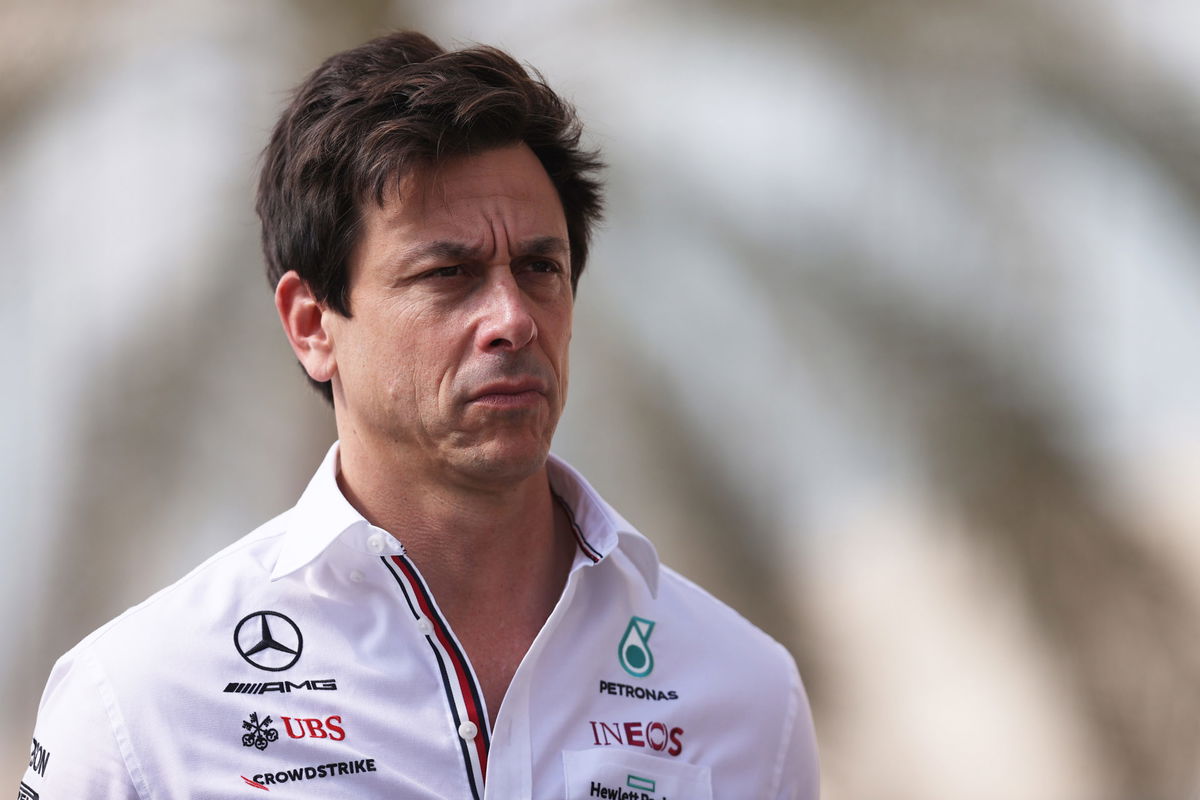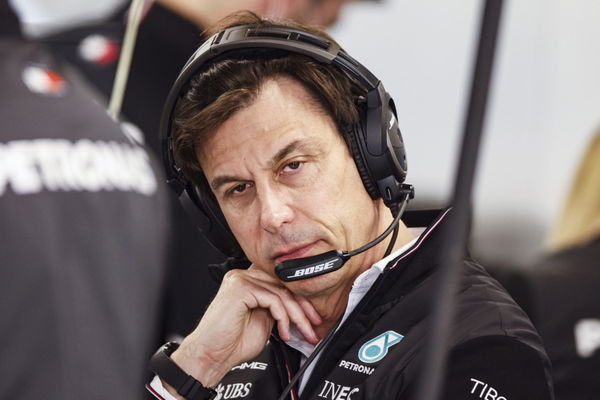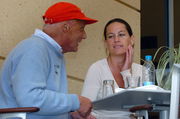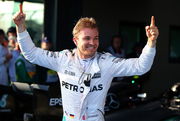
Getty
ABU DHABI, UNITED ARAB EMIRATES – DECEMBER 12: Mercedes GP Executive Director Toto Wolff walks in the Paddock before the F1 Grand Prix of Abu Dhabi at Yas Marina Circuit on December 12, 2021 in Abu Dhabi, United Arab Emirates. (Photo by Lars Baron/Getty Images)

Getty
ABU DHABI, UNITED ARAB EMIRATES – DECEMBER 12: Mercedes GP Executive Director Toto Wolff walks in the Paddock before the F1 Grand Prix of Abu Dhabi at Yas Marina Circuit on December 12, 2021 in Abu Dhabi, United Arab Emirates. (Photo by Lars Baron/Getty Images)
After Monaco, one of the biggest talking points in Formula 1 was the issue of teams sticking to the cost cap. All teams have agreed to stick to a $140 million cost cap for the 2022 season. However, now the top runners are at war with the smaller teams on the issue of raising the cap. So just exactly a big of a deal this is? Well, Mercedes boss Toto Wolff gave us an answer to that.
Watch What’s Trending Now!
ADVERTISEMENT
Rising costs due to a dramatic increase in inflation and freight costs have started to put top teams under pressure. Hence, front runners such as Ferrari, Red Bull, and Mercedes have asked for an increase in the cost cap. Or formally put, due to “force majeure” circumstances. Other costs, such as energy and certain material have also worsened the issue.
ADVERTISEMENT
Toto Wolff gives his interesting take on the 2022 budget cap
At a meeting, a proposal for a 6.1% adjustment was put forward in the Formula 1 commission, and even got support from six teams. Despite that, such a proposal did not go through. However, the main argument is that any adjustment in the cost cap this year could result in it being increased in the future.
Toto Wolff agreed that such a situation shouldn’t arise. Instead, the governing body needs to make sure so that teams don’t have to restructure again. “The cost cap was introduced for specific purposes; to allow the small teams to spend the same amount as the big ones, and they [the big ones] shouldn’t be bargaining every year to lift the cost cap up,” said Wolff to The Race.
ADVERTISEMENT

Getty
Toto Wolff, Team Principal & CEO Mercedes AMG Petronas Formula One Team, portrait during the Formula 1 Winter Tests at Circuit de Barcelona – Catalunya on February 24, 2022 in Barcelona, Spain. (Photo by Xavier Bonilla/NurPhoto via Getty Images)
“But I think we’re facing an exceptional situation in that we have real inflation that is north of 7% at the moment. Our energy prices in Brackley have tripled, our freight costs have tripled and we are talking about the high single-digit millions amount.”
Top Stories
Adrian Newey’s Motorsport Masterpiece: RB17 vs Aston Martin Valkyrie, Which One Is Better?

3 Years After His Death, Niki Lauda’s Wife Brutally Disrespects Him to Initiate $32,000,000 Battle Against Own Children

Who Is Canadian F1 Billionaire Lawrence Stroll’s Daughter & Heiress Chloe Stroll?

Who Is Oscar Piastri’s Father, Chris Piastri? Co-Founder of Multibillion Dollar Automotive Company

Fans Dig Up the Past to Troll Famous ‘Monaco Youtuber’ Nico Rosberg After Latest Accomplishment

READ MORE: Nico Rosberg Joins Hands With Elon Musk’s Brainchild in Unique Bid To Aid Ukraine
ADVERTISEMENT
Toto Wolff also added that a compromise must be found between the teams. At a time when costs are rising in the United Kingdom, where most Formula 1 teams are based, the salaries of employees will be affected. He believes that it is not about generating more profits but rather paying salaries to negate the inflation currently.
Wolff concluded, “But I want my people to be well-paid, especially in such tough circumstances.”
ADVERTISEMENT
What does increasing the Formula 1 cost cap mean?
There is some truth to Toto Wolff’s statement in regards to inflation. And it doesn’t seem like the inflation would also be coming down any soon. Hence, the argument for increasing the cost cap does sound correct in the given situation.
However, with the inverse of the situation, the whole spirit of the Formula 1 cost cap could also be broken. And this also puts the very idea of it in jeopardy. Current regulations dictate that spending beyond 5% is considered a “minor breach”, but it is very much so that Formula 1 teams will be breaking it.
WATCH THIS STORY: Ugliest Moments in Hamilton-Rosberg Rivalry
ADVERTISEMENT
So a 6.1% increase doesn’t seem like a bad idea per se, but it puts the nature of the agreed-upon cost cap in danger. The FIA has to decide what route it wishes to take and the sport will have to see if the cost cap will indeed bend or not.
ADVERTISEMENT
ADVERTISEMENT
ADVERTISEMENT

